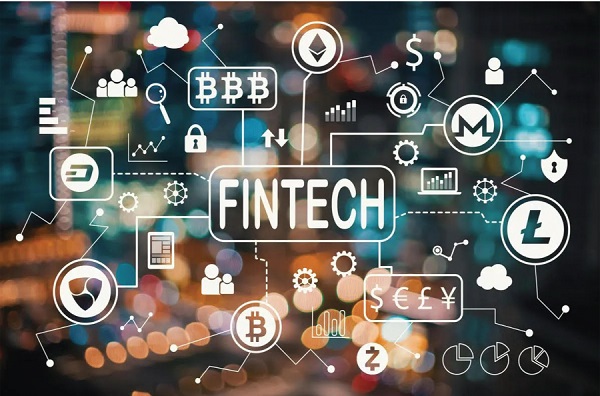
Ghana’s Fintech Ecosystem: Embracing shared resources for financial inclusion, cybersecurity devt
In Ghana, the growth of fintech and techfin companies has revolutionised the financial landscape, making financial services more accessible to the unbanked and underbanked populations.
These advancements have significantly contributed to financial inclusion, enabling millions to participate in the formal financial system.
However, with this progress comes challenges, including the high fees and charges associated with these services and the increasing threat of cybersecurity risks.
To address these issues, a collaborative effort involving fintech companies, techfin entities, financial institutions, and the Bank of Ghana is crucial.
Such collaboration can not only lessen the financial burdens on customers but also enhance the use of technology to minimise cybersecurity risks and fraudulent activities in the financial inclusion ecosystem.
Current landscape
Ghana's financial sector has seen remarkable growth in the adoption of digital financial services, driven by fintech and techfin companies. These entities have provided innovative solutions such as mobile money, digital wallets, online lending, and payment platforms, which have brought financial services closer to the average Ghanaian. According to the Bank of Ghana, mobile money transactions alone hit a record high of GH¢1.23 billion in 2023, highlighting the critical role of fintech in the country's economy.
However, this growth has not been without its challenges. Customers often face high fees and charges for using these digital platforms, which can deter widespread adoption and limit the benefits of financial inclusion.
Moreover, the rapid expansion of digital financial services has exposed the ecosystem to increased cybersecurity threats, including fraud, identity theft, and hacking.
These issues pose significant risks to both customers and financial institutions, undermining trust in the digital financial system.
Need for collaboration
To address these challenges, there is an urgent need for collaboration among fintech companies, techfin entities, financial institutions, and the Bank of Ghana. Such collaboration can take several forms:
1. Harmonisation of fees and charges: One of the most pressing issues in Ghana's financial sector is the high fees associated with digital financial services. Fintech companies and financial institutions often impose various charges for transactions, withdrawals, and other services, which can be prohibitive for low-income users.
By working together, these entities can harmonise fees and charges, ensuring that they are fair and transparent. The Bank of Ghana can play a pivotal role in regulating these fees and ensuring that customers are not exploited.
2. Shared cybersecurity infrastructure: Cybersecurity is a significant concern in the digital financial ecosystem. Fintech companies, techfin entities, and financial institutions should collaborate to develop shared cybersecurity infrastructure that can protect the entire ecosystem. This could include the establishment of a centralised cybersecurity operations center, where threats are monitored, and responses are coordinated across the industry.
The Bank of Ghana can provide oversight and ensure that best practices are followed.
3. Joint risk assessment and management: To minimise the risks associated with fraud and other cyber threats, fintech companies and financial institutions should conduct joint risk assessments. By sharing information about potential threats and vulnerabilities, these entities can develop more effective strategies to protect customers and mitigate risks.
The Bank of Ghana can facilitate this process by providing guidelines and coordinating efforts across the sector.
4. Consumer education and awareness: A key component of reducing financial burdens and enhancing cybersecurity is consumer education. Many Ghanaians are unaware of the fees they are being charged or the risks they face when using digital financial services. Fintech companies, financial institutions, and the Bank of Ghana should collaborate on consumer education initiatives that inform customers about the costs of using digital services and how to protect themselves from cyber threats. This could include campaigns through traditional media, social media, and community outreach programs.
5. Development of a unified digital identity system: One of the challenges in combating fraud is the lack of a unified digital identity system. A collaboration between fintech companies, financial institutions, and the government could lead to the development of a digital identity system that is secure and universally accepted across platforms. This would make it easier to verify customers' identities, reduce fraud, and streamline the customer onboarding process.
Enhancing the use of technology
In addition to collaboration, the use of advanced technology can play a crucial role in minimising cybersecurity risks and fraudulent activities. Technologies such as blockchain, artificial intelligence (AI), and machine learning can be leveraged to enhance the security of digital financial services.
1. Blockchain for secure transactions: Blockchain technology offers a decentralised and immutable ledger that can be used to secure financial transactions. By adopting blockchain, fintech companies and financial institutions can ensure that transactions are tamper-proof and transparent, reducing the risk of fraud.
2. AI for fraud detection: Artificial intelligence can be used to detect unusual patterns in transactions that may indicate fraudulent activity. By integrating AI into their systems, fintech companies and financial institutions can quickly identify and respond to potential threats, protecting customers from fraud.
3. Machine learning for risk assessment: Machine learning algorithms can analyse large volumes of data to identify potential risks in real-time. This technology can be used to assess the risk level of transactions and customers, allowing financial institutions to take proactive measures to prevent fraud.
Conclusion
The rapid growth of fintech and techfin companies in Ghana has brought immense benefits in terms of financial inclusion, but it has also introduced new challenges related to fees, charges, and cybersecurity. To address these issues, a collaborative approach involving fintech companies, techfin entities, financial institutions, and the Bank of Ghana is essential.
By harmonising fees, enhancing cybersecurity, and leveraging advanced technology, these stakeholders can create a more inclusive, secure, and efficient financial ecosystem.
This collaboration will not only lessen the financial burdens on customers but also build a resilient digital financial system that can withstand the threats of the modern age. In doing so, Ghana can continue to lead the way in financial innovation while ensuring that all citizens can benefit from the digital economy.
